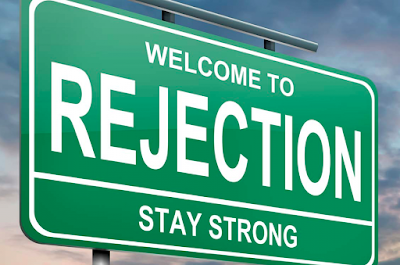Feedback Thoughts
 |
| Rejection |
Receiving feedback has always been a tense situation for me personally. Sometimes I get quite defensive when I let someone read my work and offer their opinions, which sounds silly as I was the one who asked for help in the first place. This has been an issue for me for as long as I can remember, and I think it stems from my older brothers unwaverig ability to nitpick everything I did during adolescence. Nonetheless, the expiration on blaming older brother has passed, so its become my own issue.
It is no wonder that Why It's So Hard to Hear Negative Feedback was one of the first articles I
explored, as I have asked myself this question many times. The article explained that our physical reactions to negative feedback have been heightened due to our inability to give AND receive feedback. When we know that we are about to receive bad feedback our bodies react to the situation, causes us to now fully digest the valuable information that was shared with us. Personally, I have problems with building up to hearing feedback that by the time it is presented to me I never fully hear how I could have done better, thus repeating the same mistakes.
During my internship this summer I challenged myself to hear feedback as a conversation rather than a problem that needs fixing. When presented with the feedback I would fix the problem in anticipation to see what would come next and how I could keep building. I felt it was different getting advice from a boss rather than a peer because you are on the same page as your boss more often than a peer who is not involved.
The second article I chose was Why rejection hurts so much — and what to do about it. It seemed to have the answers to all my questions! I learned that rejection causes parts of the brain to light up as it does with physical pain as well. So the experiences of rejection and physical pain are treated the same within our minds. The article explained the innate purpose of rejection and how it dates back to evolutionary reasons. However, the article explains having a high sense of self-worth is a tool in combating our fear of rejection in addition to being socially connected. Both seem simple, but building a high sense of self-worth takes high levels of self-awareness which is hard to have at a young age.
I acknowledge that I struggle with rejection, but I do not think that it inhibits my abilities to succeed, but rather my social abilities. I tend to cut people off before they have a chance to cut me off, it causes others to think I am unapproachable, which is something that I have and will continue to work on.


Comments
Post a Comment